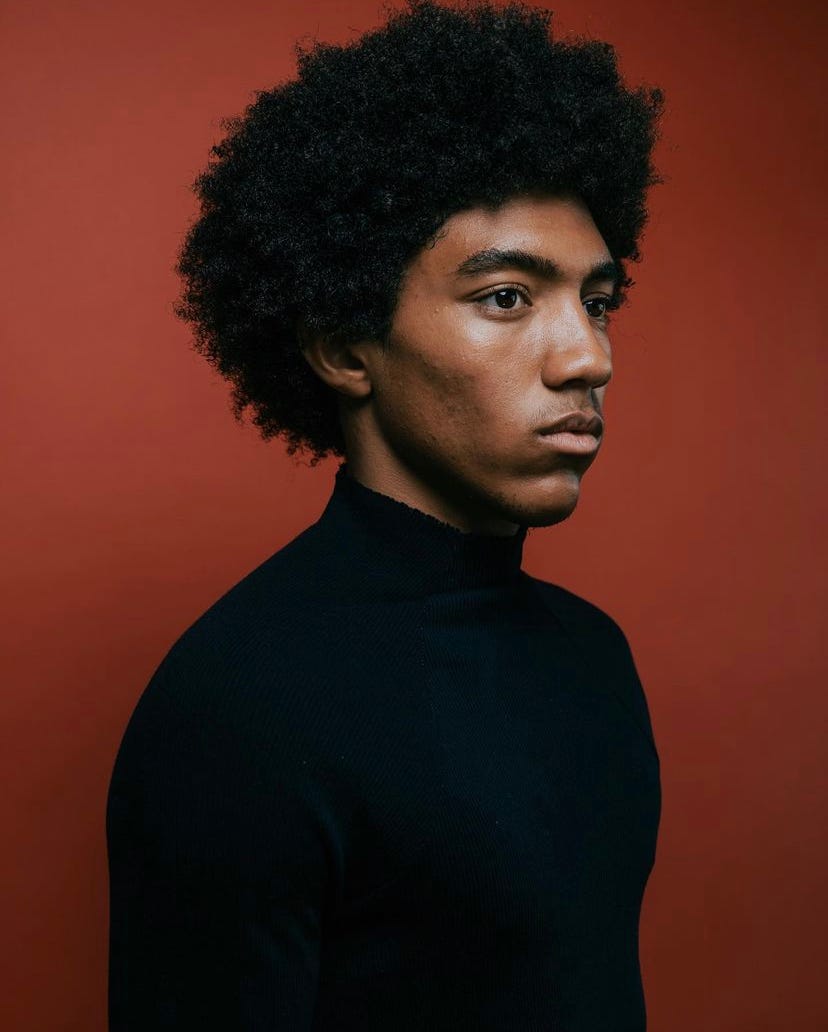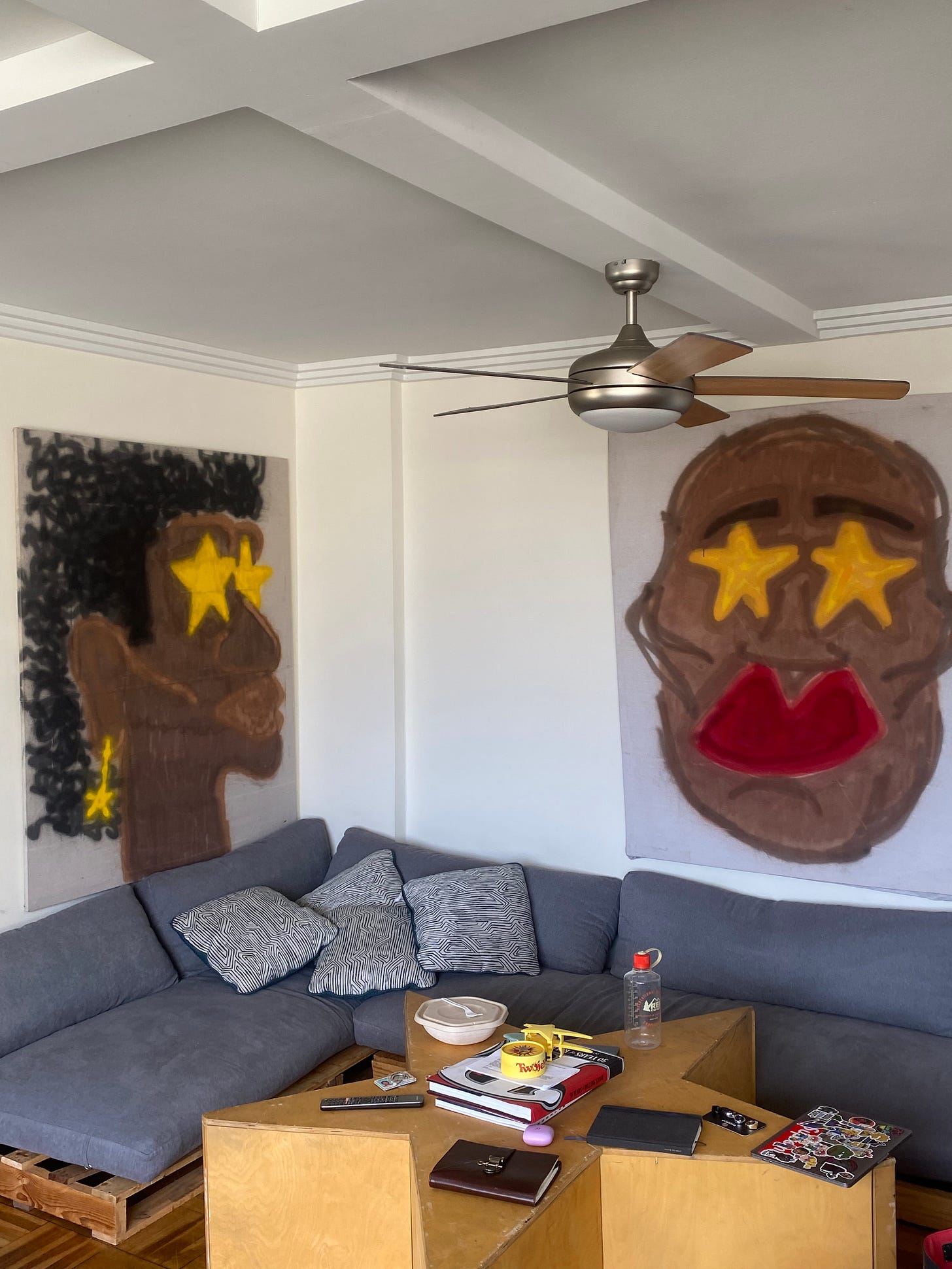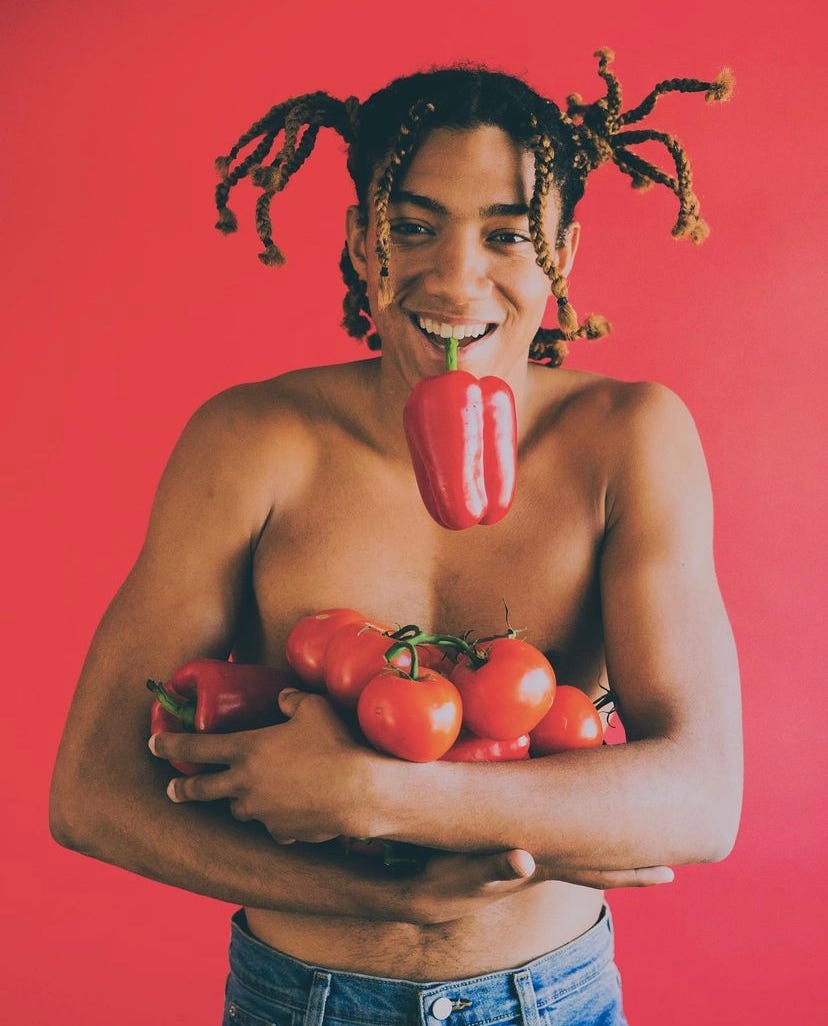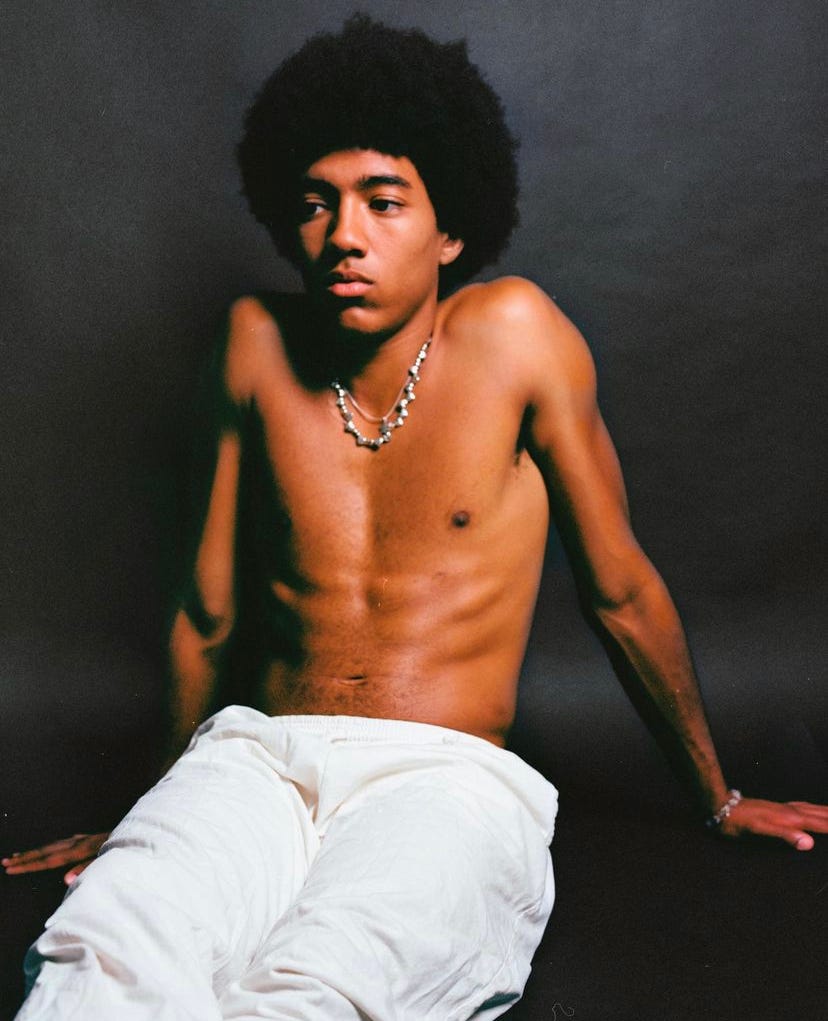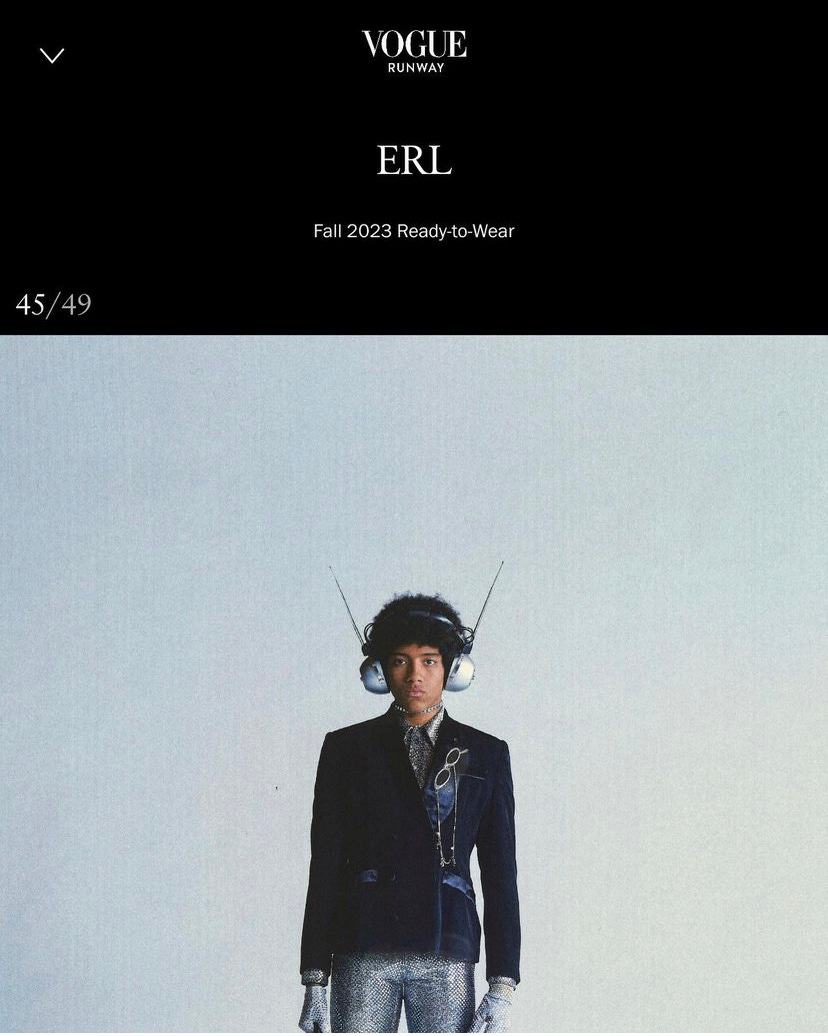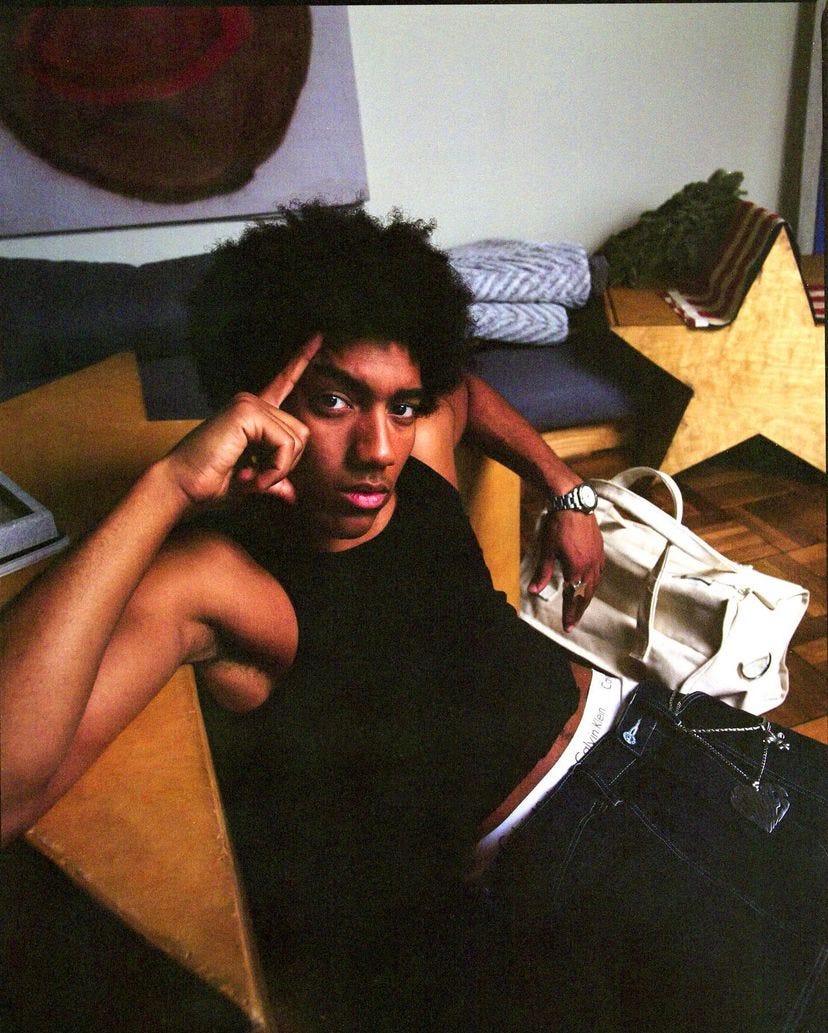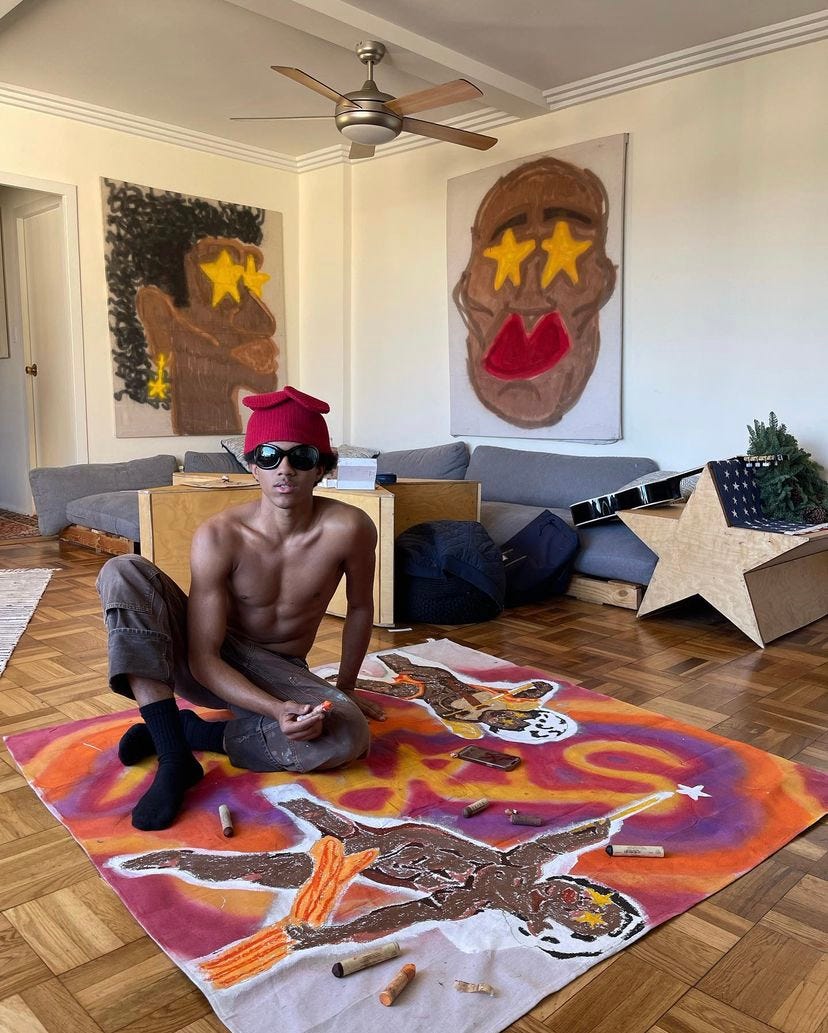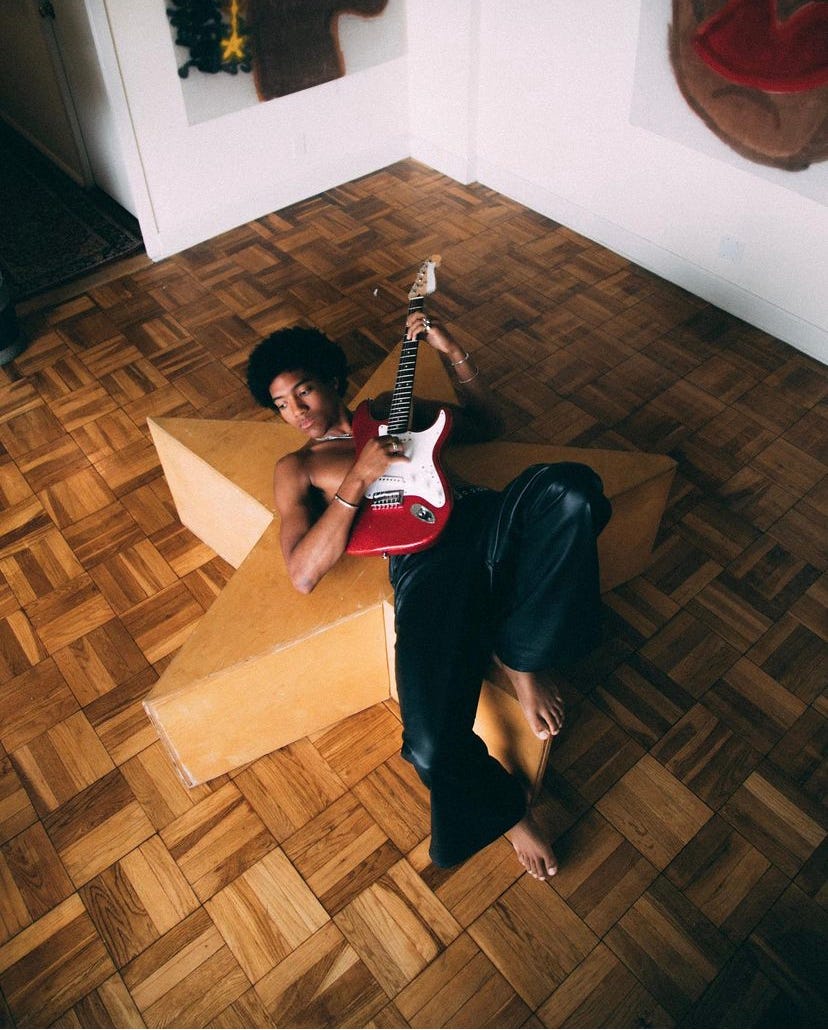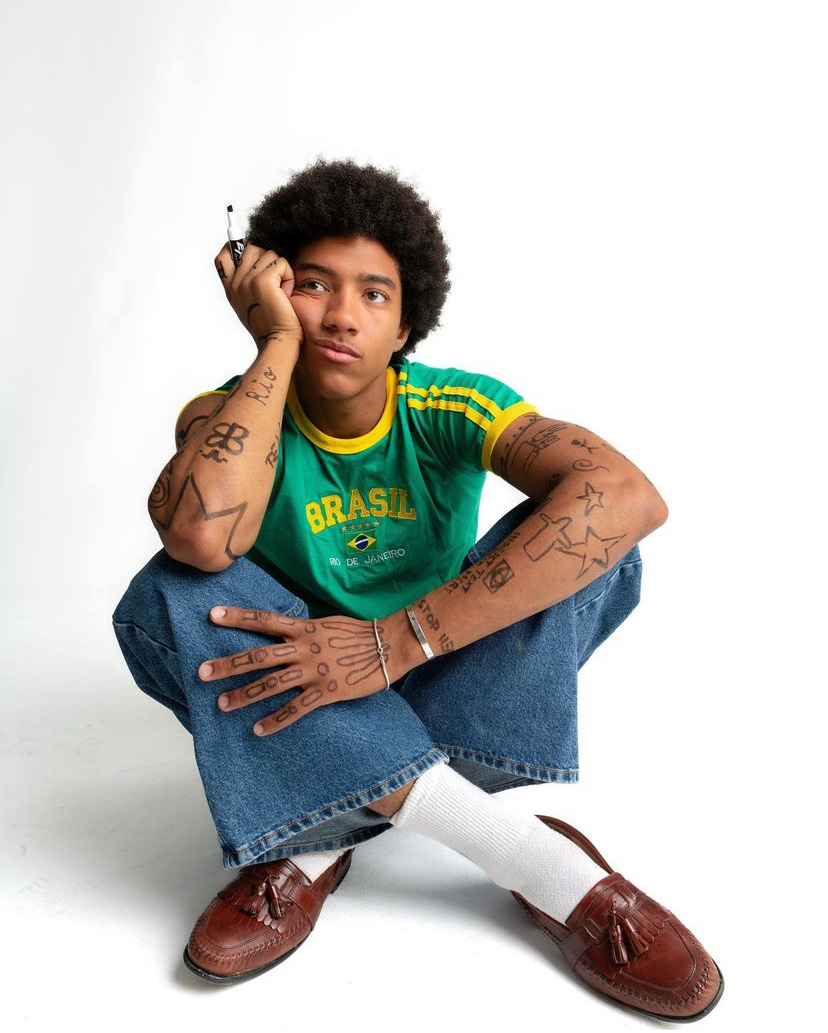An Ode to Artistry feat. Hechan Da Silva
On Acting, Independence, Love, & Brazil
From “An Ode to Artistry” a collection of quality encounters with artists of all mediums.
Directed & Written by: Tobi Orisarayi
Starring: Hechan Da Silva
This interview took place in Los Angeles, California and has been condensed. It was conducted prior to the SAG strike.
Part I: The Starman
I arrive at the towers at around 2 PM. A staple compound of LA apartments for young 20-somethings microdosing adulthood freedom. Hechan strolls across the parking lot carrying his MacBook in hand, another Los Angeles staple of any on-the-go creative. He’s just spent the night at his girlfriends place. She happens to live just a short distance away. In just those few seconds, he checks off all the boxes. Hechan (He-sean) is one of the cool guys.
We’ve known each other for eight years but this is only our second time meeting in person. There are still subtle jitters to be worked out, but we’re good with formalities. We don’t let them overpower our introductions. Just a general sizing up that we all do of our fellow human, becoming acquainted.
I try to stifle my nerves as we make our way up the tiny elevator. He presses 11, which means there will be approximately twelve seconds of silence until we reach the top. We chit chat and discover that we’re both down to cancel our plan to hit the trading post afterwards. A sigh of relief when you lose the vigor for a plan you’ve made with someone and the other person is on the same page as you.
When we get inside Hechan’s apartment, the sun greets me with open arms and my angst dissipates. His view is a lot to digest and with windows that large, I’m sure summers are hot and bright. I take off my shoes before entering his living room. I grab a rolling chair from a makeshift studio in the corner. My light sweat reminding me that I am at work.
“You dont want to just sit anywhere on here?” Hechan asks, probably sensing my nervousness.
He motions to a large couch arraignment, low to the floor, on recycled wooden pallets. Also to the several other coffee table chairs that surround it.
“No— but you can sit wherever you like, I just have to be a little professional,” I respond.
A bold and impulsive move from me, telling someone in their own home that they can sit wherever they’d like. We settle.
I explain how this conversation is going to go. He says he’s ready. That he’s an open book. I say we may get deep. He says he trusts me. I think to myself, that’s sweet. I ask how he’s doing and then I ask what he’s eaten today.
Hechan: Nothing, yet. How about you?
Tobi: I had a protein burger. No bread. A Coachella diet, if you will. You haven’t eaten something today?!
Hechan: What time is it?
Tobi: 1:27 pm.
Hechan: Nope, nothing yet.
Tobi: You should eat something.
Hechan: It’s 1:27?!
Tobi: Yeah
Hechan: Yeah, I’ll have something later…
Tobi: You should have a fruit or something.
Hechan: I’m on the model diet, everyday. *laughs*
I usually lead interviews asking about what people have eaten because food is something we all do but it is also something we all engage in differently. This doesn’t catch me by surprise, Hechan’s response. He maintains a physique that can only be achieved through discipline and intentionality. There are cuts and lines in all the same places as Timothee Chalamet or Michael B. Jordan.
I then ask what hospital he was born in.
“What hospital was I born in?” He asks, caught off guard.
“I love that question,” He adds.
It’s a pleasure to be admired for my curiosity considering it’s a major requirement of my job as a writer. I worry I’m blushing and I raise my eyebrows in anticipation of his answer.
“I was born at St. Josephs. Burbank.”
ON UPBRINGING
As we unpack Hechan’s upbringing, we find that it was his love of soccer, the trust he had of his skateboard, and the reliability of public transportation, that helped him navigate his teenage years. Years that he admits were a very lonely time for him, being homeschooled, and not having many friends.
Hechan— though sometimes reluctant to admit it— grew up in North Hollywood and confesses that the stigma around the city forced him to “reject his own zip code,” in order to help him move further along in his professional career. It’s not a decision lost on my ears. Fake it until you make it. It’s the name of the game in these parts.
But, understanding at such a young age that there is even a “game” to begin with is a tough concept to register and I ask him how it felt, having that sort of heightened awareness so early on. He says it was weird, figuring [the game] out at nine years old, connecting all the dots. And only now—with more life experience under his belt— does he find himself reversing his perception of Noho. Finding new ways to form an appreciation of his hometown, after being away for some time with work.
Even as children, we find ways to cope with the burden of maintaining an identity despite being able to conceptualize what it means to be and for Hechan, his coping mechanism was playing soccer. Soccer was a makeshift therapy for him and would help him remedy any problems he was going through. That was before…
Hechan: I just kinda like lost my mind.
*laughter*
Hechan: In the best way possible, though! I also found my mind.
Tobi: I mean, you do have to lose yourself to find yourself.
Hechan: Yeah..
Tobi: Losing your mind? What did that look like?
Hechan reminisces of childhood summertime. Southern California sun, no school, no worries. Then came the autumn where he would begin to take 60 mg of adderall a day. A time period where he felt like he was living under water.
Hechan: It was like staring at a wall. It was a lot. [Then, being homeschooled], the colors got brighter.
“What advice would you give to that 15-year old self?” I ask.
“Listen to yourself,” He says, firmly.
“As opposed to whom?” I wonder aloud.
“To everything around you,” He responds
“So, tune out the noise?”
“Yes. Remember, what your needs are. Remember to water the seeds in your garden,” He responds.
“Do you think 15 year old Hechan was doing some overcompensating?” I ask.
“Yeah, I was trying to be white and I didn’t even know that,” He says, candidly.
“Yeah, you were trying to assimilate,” I respond.
An all too familiar reality for black kids in a white world. I chuckle in camaraderie as we pivot.
ON ACTING
“So, at 15—a horrible age. I’m sorry, I feel like a lot of my deep-rooted trauma is like 15/16,” I begin.
Hechan argues that middle school is where the traumas resides.
“Damn, now I’m thinking about my trauma,” He says. We both chuckle.
“Like you’re thinking about what in your life has triggered the next thing?” I ask.
“Yes!” He says.
“Cause you’re right,” He begins, “15/16, I was very bold. Hmm. Damn. Cause 15/16 I started being friends with people on the westside. We made this song called Circles and Squares. It got like 10,000 views on Soundcloud. It was like a meme song. We’re running circles around all the squares,” He says with a laugh that suggests a subtle embarrassment at being young and naive.
This is a time period where he met most of his friends through Instagram. And it was his friend, Naiah who really put him onto taking acting more seriously.
“I was always taking classes and then my friend Naiah was like if you want to actually do this then start giving a fuck. So then I was like woah— and actually started giving a fuck.”
“I started learning some things, grew up, got into that space, started dipping my toes in—to know what it would be like in that world. I guess it’s kind of young age to propel yourself into the entertainment industry in any capacity or even have the idea of wanting to enter any industry. But I’m in LA so it was kind of inevitable,” He adds.
“But, why acting? Circles and squares. Why not music? What is it about acting? What’s the feeling you get from it?” I ask.
“I couldn’t even explain that. I get really proud. I feel like I’m actually doing something for other people. Because, I feel like music is great, but music can quickly become something that is self-servicing [masturbatory] because its more like a personal therapy that you communicate to others. I mean, obviously, Craft can be treated differently. But as far as acting goes you can’t really choose the characters you play that often. They just kind of fall into your lap, and it’s like now I have to do this. This is the job I’m being paid to do,” Hechan says, to which I am delighted by the degree of introspection it takes to be so candid.
“You have to say, ‘Yes, And,'” I add.
“Exactly,” He affirms.
But it was only recently that Hechan stopped wanting to act solely for himself. At first, there was something great about the craft. There was a lot of power involved. He couldn’t quite define it, but It was a gut feeling in the beginning. He felt like acting, like soccer, was a therapy. He found it as a medium to be loud and express himself physically and vocally and although he didn’t recognize it as such in the beginning, he understood it in some strange way.
“It was the one thing I felt like I understood,” He said.
I counter with, “Within the business of making art, you can try to do other things, but you eventually settle on your favorite. When did you decide to close the doors on all the other possibilities?”
Hechan says he never opened the door for others things. This was it for him. He always trusted that everything would be okay. He grew up always going to church. His mom is a Sunday school teacher. He has always felt some sort of connection with a higher power. Being spiritual helps him know himself better. He finds that it alleviates his stress—having a faith of some sort.
“But, my dad still wants me to be a lawyer,” He admits.
ON INDEPENDENCE
Hechan moved out of his parents apartment when he was 21. Moving out was all his idea and because he was already traveling so much for work, it just made sense. He grew up in a one bedroom apartment, and now he lives with a roommate and all his impressive artwork in the heart of Los Angeles. He’s still learning how to handle having his own space, but he has spent a lot of time curating a space that represents who he is and it shows. From the moment I stepped into his home, I felt a lot of his energy.
During our conversation he gets up to close a few doors that were left open.
“I hate open doors, in my house. I don’t know why,” He says.
“Really? What do you think that’s about?”
“I don’t know, order,” He says, trailing off.
“Really? You’re like an order person? I wouldn’t take you for that. I feel like you’re like a free, let’s frolic kinda guy,” I say.
“Nah, like I need my space to be right. Right, in a specific way. Organized, maximalist,” He says.
Hechan likes to take authority of his environment. Maybe it’s the large and grand canvases that grace the walls in a way that should feel suffocating but actually do the opposite, and are a breath of fresh air. Perhaps it’s the large wooden coffee table in the shape of gigantic star. Or maybe it’s the illustrations of big brown faces with luscious lips that stare through you. Regardless, without knowing Hechan, if you step into his space you’ll get a good whiff of his personality and help establish some meaning behind his alter-ego, The STARMAN.
The only decorations missing are his Star Bags, a venture he got into in the last two years. Bags, shaped like stars that not only hand made with care but that are aesthetically uplifting and compliment any outfit. They’re sold out most of the time but can be found at starbags.us if you’re lucky.
The conversation of owning a business brings Hechan to a memory. He says one thing his friend from Canada noticed about kids from all the major cities in America is that we all have a business of some sort. We laugh hard. Everyone has a business or is trying to create multiple sources of income and if you don’t, you’re considered lazy.
“Keep up,” Hechan says, jokingly.
Then the doorbell rings.
“My friend doesn’t have WiFi so I’m letting him work here for a little,” Hechan mentions, before rising to open the door.
He begins to speak Portuguese which is another reminder that despite our already lengthy conversation, there are even more layers to unpack.
ON LOVE AND BRASIL
Hechan was just in Brazil and he described it as perspective and life changing. When he arrived he learned he had a bigger family than he realized. And with this, they were able to give him a great deal of confidence that he was able to bring with him back to the states. While he was in Rio, he ended up making new friends and the entire trip helped him connect with his culture in a way that he hadn’t been able to before. This trip was a reset.
On and off for four to five years, Hechan was dating someone who’s father is tremendously famous in Brazil. This meant that the Brazil he was exposed to and the Brazil he interacted with was filtered through the lens of others. While he comes from two parents born and raised in the country, his perception of the country was altered during his relationship.
“So after the break up it was like, what is Brazil to me now?” He wondered aloud.
During this trip, he was able to define Brazil on his own terms and it turned out to be a rewarding experience. Through people watching and shopping different farmers markets. Cobblestoned walks with black and white tiles along a squiggly meandering path. Leisurely prances on the beach playing soccer with locals. Cigarettes on the coast with green mountains painted in the background. When he got to go back home, he was able to make his own memories. Ones that belong to him and no one else.
I know Hechan’s ex, and when she and I met, we clicked immediately. There was a similar essence to her that was magnetizing and warm. I ask Hechan if this relationship was his introduction to love. He admits that he is still curious and understanding what love is, so answering this question is hard. Undoubtedly though, he was in love with our mutual friend. Furthermore, he states It was a great introduction to love, for him. He agrees, that she had that same thing that he possesses; a great aura.
The cause for the break up was personal and not pertinent to the lessons he’s learned from the experience so I’ve omitted them. The relationship was beneficial in helping him to become the man he is now. And although there were moments of heartbreak on both ends. Hechan is someone you want to be your ex. He is the perfect ex boyfriend in the way he works at remembering you fondly. The way he reminisces isn’t spiteful. It seems to be all love, regardless of what has happened.
“Can you give any advice on how to deal with heartbreak?” I urge.
“Emotional availability. Letting yourself feel all the feelings, everything. Do what you have to do to feel the feelings but don’t rush to recover from them,” He says.
He adds, “Don’t make yourself say “you have to get over it” in X amount of days or X amount of time. Heal what you have to heal from but don’t run from it.”
“How long would you say it took you to fully come back to yourself?” I ask.
He huffs and contemplates.
“I’m still in the process, to be honest. And it’s cool because the parts that I have been able to heal— I can be grateful now, instead of being upset and I feel like that’s fire. I’m really happy about that. And there’s still some parts of me that I have to put together. It’s still a fresh wound,” He says.
And like most things in life, it takes time. When it comes to love, tread carefully. When it comes to heartbreak, feel deeply.
I leave this conversation in gratitude for being able to talk to another Black man about our thoughts and feelings. A man who is willing to put their heart on the line for sixty two minutes with an old friend. I have a gift of knowing and I can feel Hechan is on the precipice of something great and I am happy to witness his star shine bright.
Tobi: Any last words of advice?
Hechan: Live in service and be of service to Everyone, Everything, Anyone you see in your immediate space. Recognize [them] and put yourself aside.”
You can connect with Hechan on Instagram @hechandasilva.


